University of Sydney vice-chancellor Mark Scott admits he failed Jewish students
University of Sydney vice-chancellor Mark Scott has conceded he has failed his Jewish students and staff, as Education Minister Jason Clare declined to say he had confidence in him and Jewish groups questioned his position.
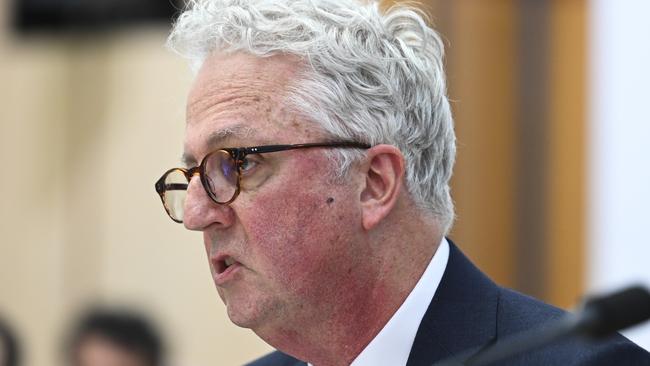
University of Sydney vice-chancellor Mark Scott has conceded he has failed his Jewish students and staff, as Education Minister Jason Clare declined to say he had confidence in him and Jewish groups questioned his position.
Professor Scott’s admission of failure came after months of warnings of rising anti-Semitism on campus and a backlash following his deal with anti-Israel protesters who camped out at the university for two months. In June, a coalition of Jewish groups said it had lost confidence in the university to provide for the safety of Jewish people.
While Friday’s testimony to a parliamentary inquiry into anti-Semitism was Professor Scott’s most frank admission of responsibility, he maintained he could right the university and said the failures had led management to make “significant changes to our policy”.
The Zionist Federation of Australia has called on Professor Scott to resign and the Executive Council of Australian Jewry condemned his “bland platitudes”.
Mr Clare failed to voice support for Professor Scott when asked whether the vice-chancellor’s admission of failure meant he should not continue at the helm of Australia’s oldest university.
Appearing before the Senate committee on Friday, Professor Scott said testimonials by Jewish students and staff were “heartbreaking and unacceptable, and for that I am sorry”.
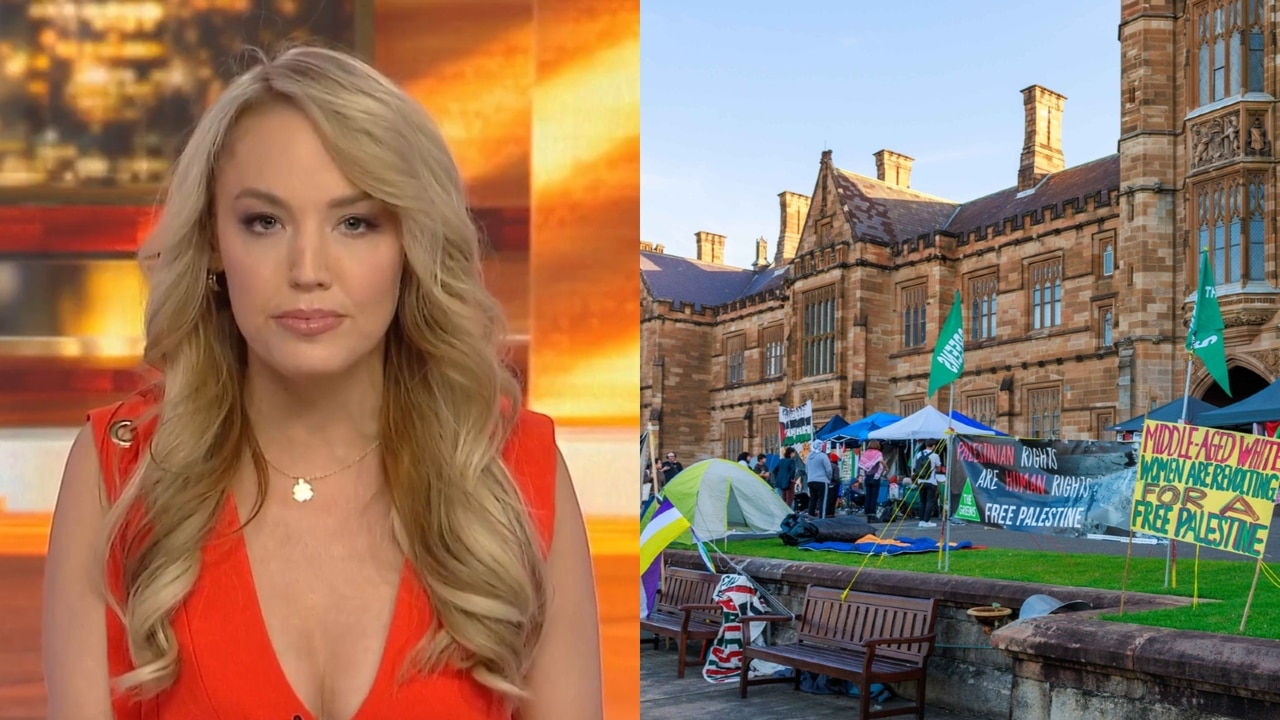
When pressed by opposition education spokeswoman Sarah Henderson and senator Paul Scarr on whether this constituted failure of leadership, Professor Scott said: “Yes, I have failed them and the university has failed them.”
In the same hearing on a Coalition-led bill to establish a judicial inquiry on campus anti-Semitism, the Australasian Union of Jewish Students said the University of Sydney was “probably one of the worst places to be a Jewish student right now”.
Monash University’s Australian Centre for Jewish Civilisation director David Slucki said “social cohesion on campus has broken down”.
Professor Scott also disputed claims by NSW Police that it had no indication that the University of Sydney had been aware of the presence of Hizb ut-Tahrir on its campus and its ties to the pro-Palestine encampment protest earlier this year. He said there was a “constant, ongoing conversation with the police” and that he met with the NSW Police Minister and police counter-terrorism officers for a briefing about Hizb ut-Tahrir a month before police said they had no indication.
ANU vice-chancellor Genevieve Bell was also grilled on how Beatrice Tucker, a student who was expelled after saying on radio that Hamas deserved “unconditional support”, had her expulsion reversed and was now running to be president of the student association. Professor Bell said the university’s independent student appeals committee had the power to overturn a disciplinary decision.
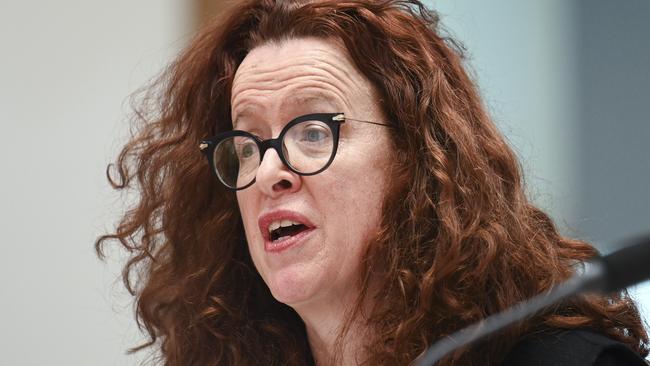
The University of Sydney, when contacted for comment on the assessment it was the “probably one of the worst places to be a Jewish student”, said it recognised it had to “rebuild trust” with the Jewish community.
“We have met with many Jewish students, staff and the community over the past 11 months and at times these conversations can be demanding and complex,” Professor Scott told The Weekend Australian.
“These are difficult issues that require time to engage, and all parties deserve to be treated with mutual respect and courtesy. I recognise we need to rebuild trust with the Jewish community, including AUJS, and I am committed to that.”
Professor Scott told the Senate committee he now regretted that “we did not communicate the agreement to end the encampment with the Jewish community before it was announced”.
That agreement with the university’s Muslim students association gave it a seat on a committee that would review the university’s defence and security investments.
Zionist Federation of Australia president Jeremy Leibler called on Professor Scott to resign. “Mark Scott’s extremely belated apology – directed at a Senate inquiry instead of Jewish students and only after being forced to appear, rings hollow,” he said.
“He has consistently acted in bad faith and has diminished any remaining credibility.
“For the University of Sydney to regain the trust of Jewish students and staff, Mark Scott must go.”
Executive Council of Australian Jewry co-chief executive Peter Wertheim cast doubt on the extent to which Professor Scott recognised his “failure”.
“An admission of failure is an essential first step towards righting any wrong,” he said.
“But there needs to be evidence that the nature and the extent of the failure are fully understood and that the appropriate conclusions have been drawn.
“If that were the case, we would have also had a proper public apology and a detailed commitment to take corrective action.
“University leaders have to date been a rich source of bland platitudes, but have fallen woefully short when it comes to practising what they preach.”
Mr Clare, when asked about the Coalition’s renewed call for a judicial inquiry into campus anti-Semitism in light of the hearings and about whether Professor Scott should remain as vice-chancellor given his admission of failure, did not explicitly voice support for him.
“A lot of Jewish students are being made to feel unsafe and unwelcome at uni – that’s not on,” Mr Clare said. “The government has made clear that unis must enforce their codes of conduct.
“The government is also establishing a national student ombudsman that will have the power to launch investigations and receive student complaints, including about anti-Semitism.”
Senator Henderson did not go as far as to call for Professor Scott’s resignation but said that Friday’s hearing made it “critical” that there be a judicial inquiry into campus anti-Semitism.
“There have been so many shocking incidents and Education Minister Jason Clare has done next to nothing to hold universities to account for their failings, and we say that is not good enough,” she said.
Greens senator Mehreen Faruqi, who weeks ago caused controversy when she was inserted into this Senate committee and replaced party colleague David Shoebridge, did not attend the hearing.



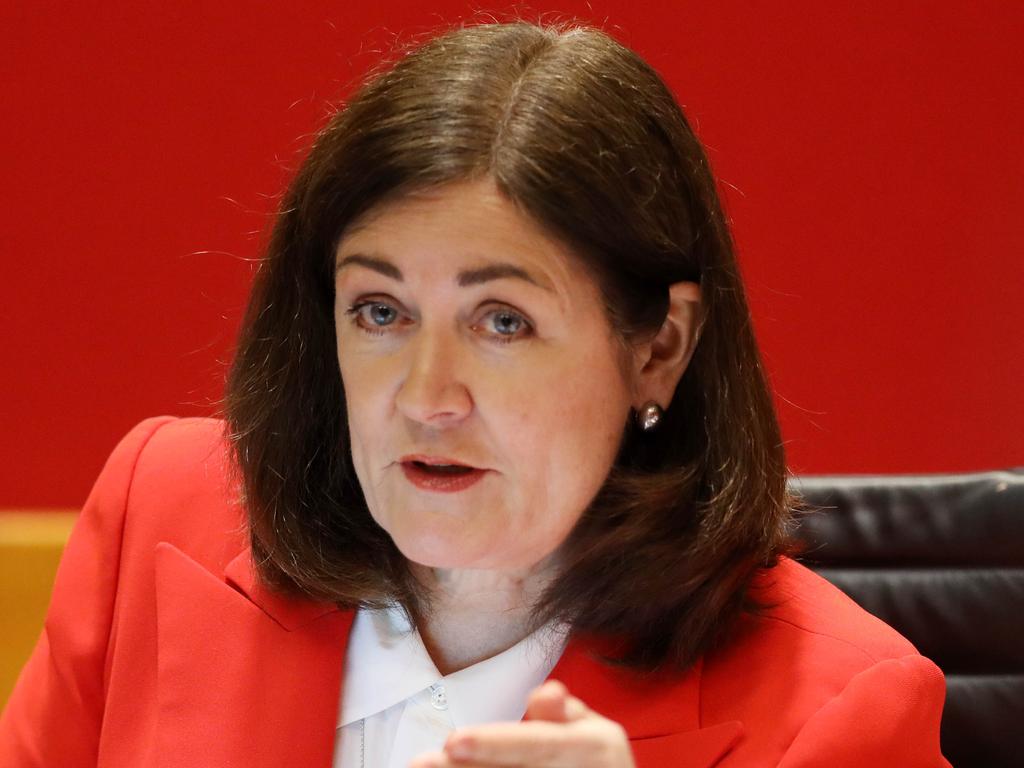
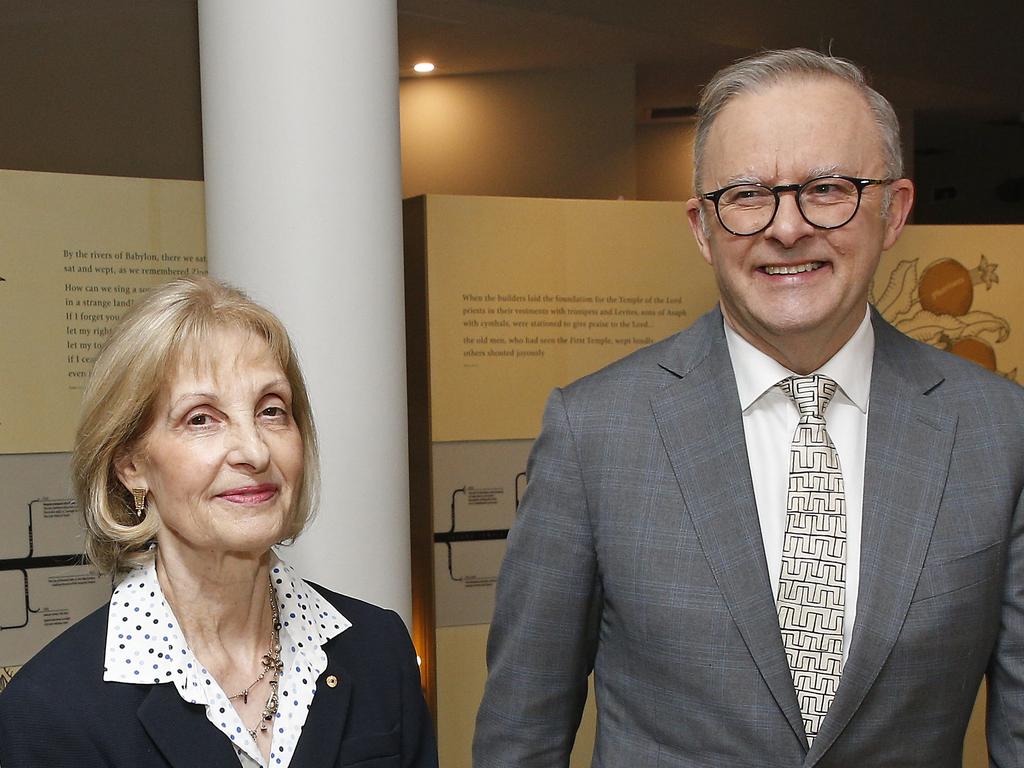



To join the conversation, please log in. Don't have an account? Register
Join the conversation, you are commenting as Logout